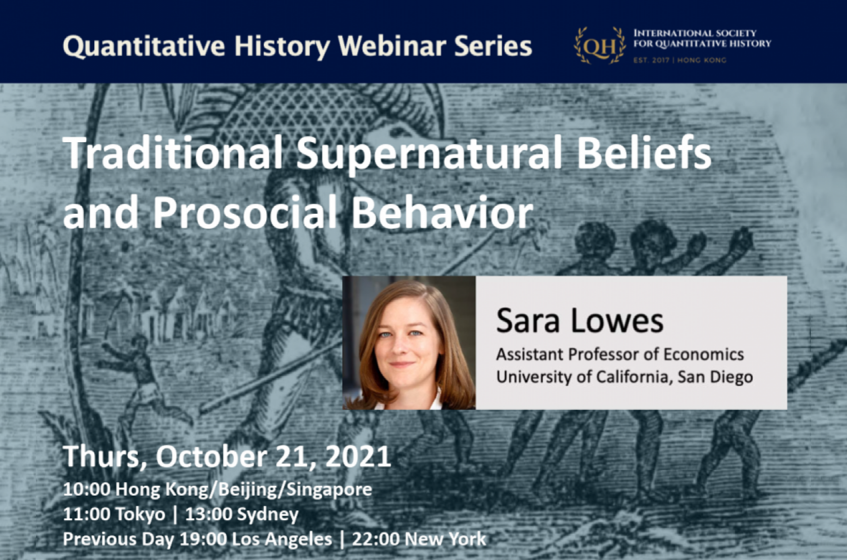
Traditional Supernatural Beliefs and Prosocial Behavior
Traditional Supernatural Beliefs and Prosocial Behavior
In sub-Saharan Africa, traditional supernatural beliefs, including belief in witchcraft, black magic, or fetishism, are widespread. Some have hypothesized that these beliefs help to sustain cooperative behavior in a setting where the state is often absent. Others have documented that, at least at a macro-level, such beliefs are negatively associated with prosocial behavior.
Sara Lowes of UC San Diego and her co-authors contribute to a better understanding of the causal effects of these traditional supernatural beliefs by using lab-in-the-field experiments in the Democratic Republic of the Congo. Participants complete a range of experimental tasks where one player chooses whether to act in a prosocial manner towards another player. Participants are randomly assigned to another player that has either a strong or weak belief in witchcraft, and this information is known by the players. They find that participants act less prosocially towards randomly-assigned partners who believe more strongly in witchcraft. They also find that antisocial behavior is more socially acceptable and prosocial behavior less socially acceptable when playing with a partner who believes more strongly in witchcraft.
In this Quantitative History Webinar, Sara Lowes will share their findings and explain why the negative relationship between witchcraft and prosocial outcomes observed in the data may, in fact, be due to the causal effect of the presence of traditional supernatural beliefs on people’s behavior.
Sara’s co-authors: Etienne Le Rossignol (Centre d’Économie de la Sorbonne and LSE) and Nathan Nunn (Harvard)
Live on Zoom on October 21, 2021
10:00 Hong Kong/Beijing/Singapore
11:00 Tokyo | 13:00 Sydney
Previous Day 19:00 Los Angeles | 22:00 New York
Calculate your local time
The Quantitative History Webinar Series, convened by Professor Zhiwu Chen and Dr. Chicheng Ma of The University of Hong Kong (HKU), aims to provide researchers, teachers and students with an online intellectual platform to keep up to date with the latest research in the field, promoting the dissemination of research findings and interdisciplinary use of quantitative methods in historical research. The Series is co-organized by the International Society for Quantitative History, HKU Business School, and the Asia Global Institute (AGI).
Conveners:
Professor Zhiwu Chen
Dr. Chicheng Ma







